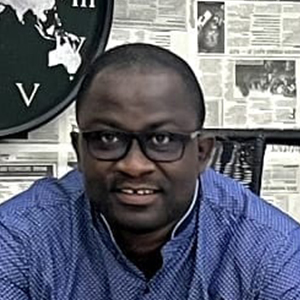The problem with violence in Ghana football is not its ugly recurrence. It’s the distressful fact that anybody can harm you and destroy anything at a match venue and get away with it. This appears untrue in practice but that’s the sad reality when it comes to hooliganism in our football.
If there’s any resolve to be made today, on the 22nd anniversary of the May 9th, 2001, Accra Sports Stadium disaster (that killed 127 fans), it must be that football hooliganism can’t be reduced to the barest minimum if hooligans aren’t arrested and made to face the law as any criminal would do. Arrest and prosecute hooligans, Ghana Police.
The ‘Never Again’ refrain that we have sung for more than two decades is presently meaningless. It’s trite. Conditions for violence in our football are still present. Three years ago, a fan's eye was plucked out by a police bullet in Kumasi. On the eve of the 21st anniversary of this catastrophic day in 2022, RTU suffered a home ban for mercilessly attacking a referee.
On the 22nd commemoration, Aduana Stars just finished serving home sanctions after their fans callously attacked Tamale City’s bus leaving players wounded and the glass windows of their bus destroyed. No one was arrested, charged and/or prosecuted. There's been no word from the Police for weeks now. There wouldn't be any at all.
Perceived bad refereeing was what triggered the unruly, chaotic abd bloody scenes that led to May 9th stadium disaster. Yet, while we prepared to observe the 22 years of this dark day in our football history, a budding referee under the ‘Catch them Young Refereeing' programme has been beaten in Bolgatanga, Upper East Region.
What lesson at all have we learnt? How safe are fans if hooligans would always be left scot-free? We can’t eliminate conflict. No matter how undesirable conflict is, it’s no surprise if by our nature, our conflicts end in violent clashes but as pertains in most civilised jurisdictions, hooligans are dealt with by law.
Sadly, in Ghana, hooligans are treated with kid’s gloves. That’s a big flaw in the fight against football hooliganism here. The Ghana Football Association might be invoking its sanctions (often not deterring) against violent clubs. They call it sporting decisions. That’s the best they can do. You can’t fault them.
What’s left is for the state – the Ghana Police Service to seriously take up the criminal aspects of the disturbances at league centres and deal with the issues and the culprits as they would do should it be any other violent crime. It’s either that happens, or we consign ourselves to the futile or vain faith that hooliganism can’t be combatted.

